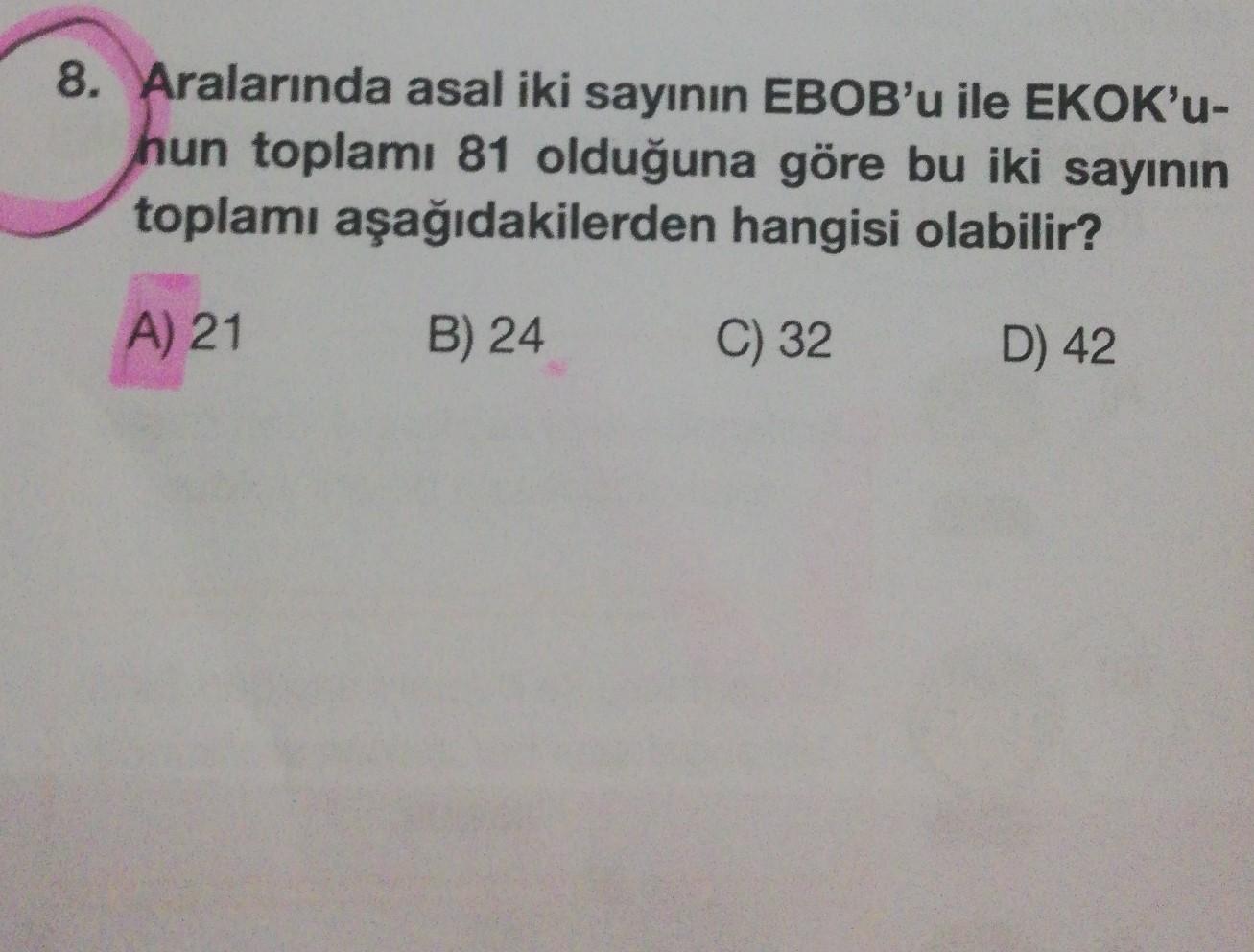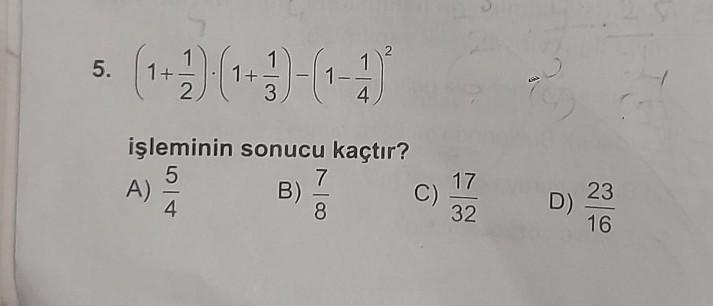Soru: Selam 8.sınıf İngilizce "Friendship" Ünitesini anlatın. spam cevap olmasın iyi aksamlar....
Cevaplar 2
Cevap:
Peki
Açıklama:
Ünitedeki en önemli kelimeler
Accepting and Refusing.
Bu kelimeler Türkçeye kabul etme ve reddetme anlamları ile çevrilmektedir. Bunları öğrenmedn önce davet etme, teklif etme ve öneride bulunamazsın bu yüzden bu kelimeleri anlaman önemlidir. Bu kelimeleri öğrendiyseniz artık teklif etme ve öneride bulunabilirsiniz ayrıca bu attığım video ile ünitenin tamamını kapsamlı bir şekilde anlayabilirsin. https://youtu.be/b5zR7Uk86KM
videoyu 2x te izlersen tüm kelimeleri anlamaya bilirsin ama 1.5x te izleyebilirsin iyi günler.
-
Yazar:
damiánwebb
-
Bir cevabı oylayın:
0
LEARNING OUTCOMES (Ünite Kazanımları)
Vocabulary About Personal Traits And Friendship
Makings Offers / Suggestions / Invitations
Accepting And Refusing
Giving Reasons And Explanations – Making Excuse
Understanding Invitation Cards, Letters And E-Mails
Asking For Plans
Telling About Plans (be going to – present continuous tense)
Ordering Food in a Restaurant
VOCABULARY ABOUT PERSONAL TRAITS AND FRIENDSHIP
(KİŞİSEL ÖZELLİK VE ARKADAŞLIKLA İLGİLİ KELİMELER)
GOOD FRIENDS ARE …
Honest: They don’t tell lie. They always tell the truth.
Generous: They help people in need. They give money and share their belongings with friends.
Understanding: They can understand their friends easily. They are sensitive to people around them.
Tactful: They are very careful not to say bad things. They don’t upset or annoy their friends.
Caring: They are kind and helpful. They always care the people around them.
Fair: They treat everyone equally.
Loyal: They are always with their friends. They don’t change their friends easily.
Helpful / Supportive: They help/back up their friends. They are always there when someone needs them.
Reliable: They keep their friends’ secret. They don’t share their friends’ secret with others.
BAD FRIENDS ARE …
Jealous: They feel angry or unhappy when somebody they love are interested in other people.
Mean: They behave badly or rudely.
Stubborn: They don’t change their opinions easily.
Arrogant: They think that they are better or more important than others.
Unreliable: They always tell lie. You can’t trust or depend on unreliable people.
Sneaky: They behave in a secret or dishonest way.
Self-centered: They think only about themselves. They don’t think about needs or feelings of other people.
Bad tempered: They are often angry or in an angry mood.
Aggressive: They always behave in an angry way.
Laidback: They don’t worry about anything. They are always calm and relaxed.
MAKINGS OFFERS / SUGGESTIONS / INVITATIONS
(DAVETTE ÖNERİDE TEKLİFTE BULUNMA)
Would you like (to) …………………..?
Would you like to go to cinema with me?
Would you like some more sugar?
Do you want (to) ………………………?
Do you want orange juice?
Do you want to come over tomorrow?
Shall we ………………………….?
Shall we play chess after school?
Shall we watch a movie together?
What about ……………………..?
How about …………………………?
What about studying for the exam together?
How about going to gym after class?
What about a slumber party tomorrow?
Why don’t you ……………….?
Why don’t we ………………….?
Why don’t you buy a gift for Jack?
Why don’t we have a party tonight?
Let’s ………………………
Let’s go for a walk by the seaside.
ACCEPTING AN INVITATION / OFFER
Why not?
Sounds good / great / awesome
Good / great idea
That would be great
Sure / Of course
I would love to (I’d love to)
I would like to (I’d like to)
I can’t refuse this offer
Alright
Yes / Yeah / OK. When is it? Where is it?
I will be there
I can make it.
Definitely / Certainly
I don’t want to miss this chance
REFUSING AN INVITATION / OFFER
No, thanks
I’m sorry I can’t
I’m afraid I can’t
I’m busy
No way!
Thanks for inviting but …
I’d love to but …
I’d like to but …
I’m sorry I must / have to …
I’m not free
I can’t make it
Another time, maybe.
GIVING REASONS AND EXPLANATIONS – MAKING EXCUSE
I must … / I have to … / I’m going to … / I’m busy
I’m going to visit my uncle this weekend.
My cousins are coming then.
I have a plan with my family
I have an exam tomorrow. I must study.
I don’t feel good.
POSSIBLE QUESTIONS ABOUT AN INVITATION, E-MAIL OR LETTER
When is the event?
What time is the party?
What is the event?
Where is it?
Who is the sender / inviter / invitee?
How much will you pay for the event? / How much is the fee?
Who can you contact / call / keep in touch for more information?
How can you learn more details?
Who is the invitation for?
ASKING FOR PLANS
Are you doing anything tonight?
Do you have any plans on Monday?
Are you busy tomorrow?
Are you free tonight?
Have you got any plans next week?
What are you doing tomorrow?
What are your plans for the weekend?
What are you going to do tomorrow evening?
Possible Answers
No, not at all
Nothing special
Yes, I’m going to ……..
I don’t have anything to do
I’m free
I’m busy
Not really
TELLING ABOUT PLANS
İngilizce’de gelecekle ilgili planlardan, yapılması kesin olan şeylerden bahsederken;
1- “be going to” gelecek zaman yapısı
2- şimdiki zaman yapısını kullanırız.
1- BE GOING TO = -ecek, -acak
Going to future tense, daha önceden planlanmış ve karar verilmiş eylemler için kullanılır. Aşağıdaki tabloda “going to future tense” yapısının olumlu, olumsuz ve soru yapılarını inceleyiniz.
OLUMLU OLUMSUZ SORU
I am going to swim (Yüzeceğim.) I am not going to swim (Yüzmeyeceğim) Am I going to swim? (Yüzecek miyim?)
You are going to swim (Yüzeceksin) You aren’t going to swim (Yüzmeyeceksin) Are you going to swim? (Yüzecek misin)
He is going to swim (Yüzecek) He isn’t going to swim (Yüzmeyecek) Is he going to swim? (Yüzecek mi?)
She is going to swim (Yüzecek) She isn’t going to swim (Yüzmeyecek) Is she going to swim? (Yüzecek mi?)
It is going to swim (Yüzecek) It isn’t going to swim (Yüzmeyecek) Is it going to swim? (Yüzecek mi?)
We are going to swim (Yüzeceğiz) We aren’t going to swim (Yüzmeyeceğiz.) Are we going to swim? (Yüzecek miyiz?)
They are going to swim (Yüzecekler) They aren’t going to swim (Yüzmeyecekler) Are they going to swim? (Yüzecekler mi?)
“Going to future tense” genellikle “go” ve “come” fiilleriyle kullanılmaz. Bu fiillerle cümle kurulurken present continuous tense (şimdiki zaman) kullanılması daha uygun olur.
– I am going to go to London tomorrow. – I am going to London tomorrow. (DOĞRU)
– Are you going to come to the party? – Are you coming to the party? (DOĞRU)
2- PRESENT CONTINUOUS TENSE (ŞİMDİKİ ZAMAN)
İngilizce şimdiki zaman yapısını – aynı Türkçede olduğu gibi- kesin yapacağımız yakın gelecekten bahsederken kullanabiliriz. (İngilizce’de şimdiki zamanlı cümle yaparken daha önce gördüğümüz gibi am/is/are + VERB (ing) şeklinde yapıyoruz.)
I’m meeting Jim at the cafe tomorrow = Jim and I have discussed this.
I am leaving tomorrow. = I’ve already bought my train ticket.
We’re having a staff meeting next Monday = all members of staff have been told about it.
I’m going to İstanbul tomorrow.
Are you doing anything tonight?
We are attending chess club this weekend.
He is coming to party, too.
İyi dersler :)
-
Yazar:
elizad8fr
-
Bir cevabı oylayın:
1



